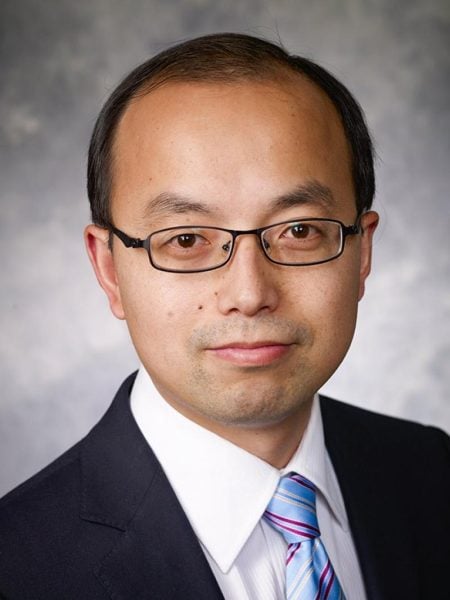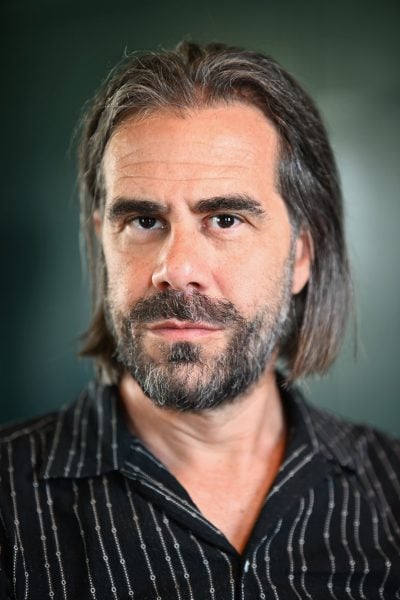
Researchers, faculty, students, alumni, and community members are invited to the fourth annual Computing [MTU] Showcase Oct. 1-3. The showcase features keynote talks, panel discussions, research exhibits, and student activities that explore how computing tackles society’s most complex challenges while opening doors to new opportunities in research, industry, and community.
This year’s theme, Digital Frontiers: Advancing Computing for a Better World, highlights the innovations and collaborations shaping the future of technology.
Showcase Line-up
From a vehicle hackathon to sessions with nationally known experts, the Computing[MTU] Showcase offers multiple ways to explore computational frontiers. Refreshments will be served at several of the events. Dive into the full schedule.
Happening Wednesday through Friday, the showcase is centered in the Rozsa Center for the Performing Arts. It’s free and open to the public. Sponsored by Michigan Tech’s Institute for Computing and Cybersystems (ICC), and the College of Computing, the event features guest speakers along with campus experts gathering to share research, exchange ideas, and chart the future of technology.
“The strength of the showcase is in the connections it creates,” said Dennis Livesay, dean of the College of Computing.
“By bringing together researchers, students, industry leaders, and community members, we not only build collaborations for a better world but also advance the innovations at the heart of solving society’s most pressing challenges.”
– Dennis Livesay, Dave House Dean of Computing, Michigan Tech
The Computing Showcase opens with a Women in IT and Tech Panel, featuring diverse voices and leadership shaping the future of computing. Panelists include Trisha Fish, VP of strategy and digital transformation and senior director of AI advanced programs at Rapta, Inc.; Laura Brown, professor of computer science, associate dean of data science initiatives, and director of Data Science programs at Michigan Tech; and alumna Dianne Marsh ’86 ’92, former director of consumer product security and trust at Netflix. The discussion, moderated by Computer Science Professor Emerita Linda Ott, will provide space for dialogue on inclusion, innovation, and the opportunities and responsibilities at the core of technology’s next chapter.
The showcase is anchored by two dynamic keynote speakers whose expertise reflects the breadth and depth of computing’s impact.

Zhiqiang Lin, distinguished professor of engineering and director of the Institute for Cybersecurity and Digital Trust at The Ohio State University, will present Thursday on advancing security in computing systems. A nationally recognized leader in systems and software security, Lin has authored more than 170 papers in top-tier cybersecurity venues. His work spans automated binary analysis, malware detection, and mobile app security. Lin has received multiple honors, including the National Science Foundation CAREER Award, the Air Force Office of Scientific Research Young Investigator Award, and numerous best paper awards. His keynote will highlight how innovations in security research safeguard the digital frontier against emerging threats.

Later on Thursday, the conversation shifts to the cultural dimensions of technology with Ian Bogost, distinguished professor at Washington University in St. Louis. An interdisciplinary scholar and award-winning game designer, Bogost holds appointments in film and media studies, art and design, and computer science and engineering. He also serves as co-executive director of the university’s Office of Public Scholarship. A founding partner of Persuasive Games LLC and long-time contributing editor at The Atlantic, Bogost is known for bridging academic research with creative practice. His independent games, such as Cow Clicker and A Slow Year, have garnered international recognition, sparking conversations about politics, culture, and the role of play in society. Bogost’s keynote, “Idle Hands: How Windows Solitaire Invented Contemporary Computing,” explores how a seemingly simple card game influenced the way we interact with technology. Drawing connections from medieval tarot traditions to Victorian patience games and finally to Solitaire’s debut on Windows computers, he shows how an activity centered on waiting transformed into a workplace distraction and ultimately foreshadowed the patterns of digital life we know today.
Student Hackathon, Research Presentations, and Networking
Tim Havens, ICC executive director, said one of the most exciting aspects of the showcase is how it involves and inspires students while opening additional avenues for collaborative research.
“The annual Computing Showcase brings industry connections to campus, sparking organic conversations and relationship building while highlighting groundbreaking research at Michigan Tech and provides mentoring and education resources to researchers who may not have worked with industry before, helping them realize that success is not just about proposals—it’s about relationships, trust, and collaboration.”
– Tim Havens, ICC Executive Director
This annual poster presentation session is always popular. This year, it will feature student research on artificial intelligence, data science, cybersecurity, human-centered design, and more. Faculty, staff, and community members are encouraged to attend, ask questions, and learn more about the work Huskies are doing across computing fields.
There’s also a new, student-centered event this year: the first vehicle security hackathon runs from 8:30 a.m. to 12:30 p.m. on Thursday, Oct. 2. Students of all cybersecurity skill levels across majors are welcome to compete, with a mandatory training set for 1:30-3:30 p.m. on Wednesday, Oct. 1. Students must register by midnight on Monday, Sept. 29. Scholarships for first, second, and third place will be awarded: $500, 400, and $300 respectively.
Honoring Outstanding Alumni and Exceptional Research
The showcase also celebrates achievement, leadership, and service in the computing community. This year, the College of Computing Honor Academy will recognize alumni inductees Marsh, who earned her bachelor’s and master’s degrees in computer science, and Mark Gauthier ’85, who earned his BS in mechanical engineering, for their distinguished careers and extraordinary contributions to the advancement of the College and its programs. In addition, the ICC Achievement Awards, announced at a showcase ceremony for invited guests, will honor faculty members whose exceptional efforts have advanced the mission of the Institute, strengthening research and learning across its seven centers.
View activities and honorees from past showcases and learn more about the event at the Computing[MTU] Showcase website.
About the College of Computing
The Michigan Tech College of Computing, established in 2019, is the first academic unit in Michigan dedicated solely to computing, and one of only a handful such academic units in the United States. The college is composed of two academic departments. The Computer Science department offers four bachelor of science programs in computer science, cybersecurity, data science, and software engineering; four master of science programs in applied computer science, computer science, cybersecurity, and data science; and a doctoral program in computer science. The Applied Computing department offers four bachelor of science programs in cybersecurity, electrical engineering technology, information technology, and mechatronics; two master of science programs in health informatics and mechatronics; and a doctoral program is in computational science and engineering.
Questions? Contact us at computing@mtu.edu. Follow the College of Computing on Facebook, Instagram, LinkedIn and Twitter.